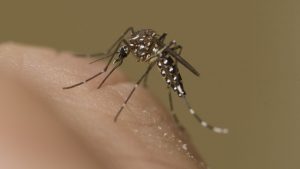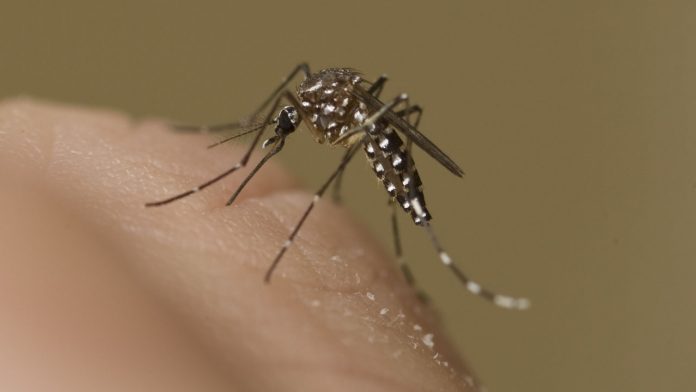 The city of Highland Village will spray for mosquitoes this weekend after a trap in the Castlewood area tested positive for West Nile Virus.
The city of Highland Village will spray for mosquitoes this weekend after a trap in the Castlewood area tested positive for West Nile Virus.
City crews will spray in the Silverthorne and Castlewood areas in the morning hours of Saturday and Sunday, and will concentrate efforts on the creeks, drainage culverts and wooded wet areas, according to a news release from the city.
The Public Works Drainage Division has a proactive program to test and detect the presence of West Nile Virus within the city’s corporate limits. The West Nile Virus is carried by only one species of the 85 known species of mosquito of Texas, the Culex Quinquefasciatus and it’s only the female that has the ability to transfer the WNV to a human host. The city has a very active weekly mosquito testing program that spans from May through the end of October, traps are deployed, samples collected and tested for West Nile Virus.
City crews are currently treating standing water in culverts, creeks, wooded areas and greenbelts throughout the entire city. The frequency of the recent rains has worked to keep the water moving and clear out standing water areas where mosquitoes can breed. Although it has spiked a population of the flood water nuisance mosquitoes, the city does not spray for the nuisance mosquito population as it is cost prohibitive.
Now is the time to ensure there is no standing water around your property. Check French drains, empty out water from plant trays, pet water bowls, anywhere you see standing water. The BTI “DUNKS” can be purchased at most local hardware stores to place in areas of standing water around your home that can’t be removed.
The city of Highland Village reminds residents to take the proper precautions to reduce their risk of getting the mosquito-borne West Nile virus by remembering the four D’s: drain, dress, DEET and dusk/dawn.
Residents should:
- Drain standing water around their homes to reduce mosquito breeding sites.
- Dress in pants and long sleeves when outside in mosquito-infested areas, but avoid becoming too hot.
- Apply an insect repellent that contains DEET (N,N-diethyl-m-toluamide) to exposed skin and to clothing when outdoors.





















